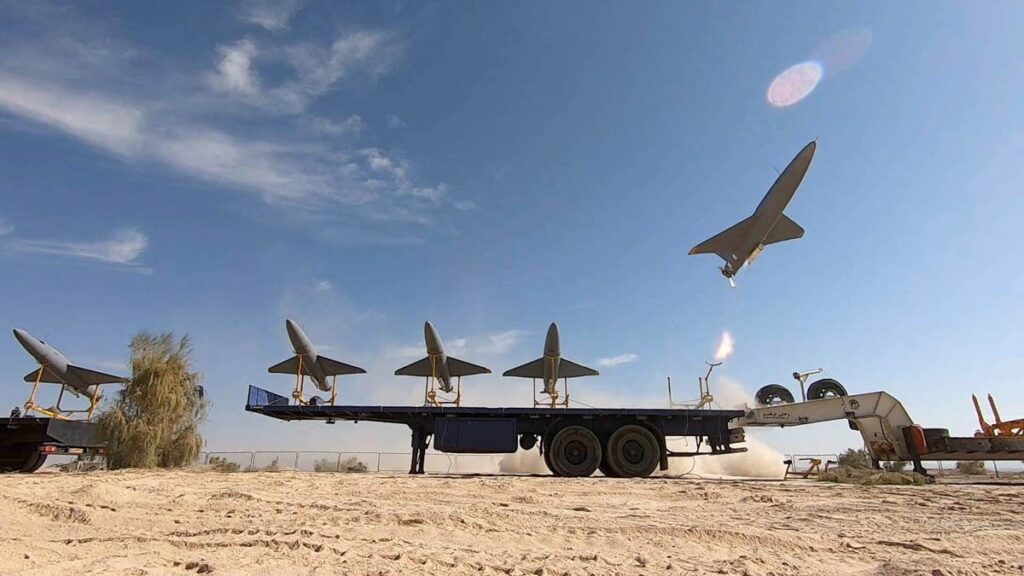
The United States has intensified its efforts to exert pressure on Iran by imposing new sanctions targeting the country’s cyber and drone capabilities. The Treasury Department announced sanctions on six officials of Iran’s Islamic Revolutionary Guard Corp’s Cyber Electronic Command (IRGC-CEC), alleging their involvement in malicious cyber activities against critical infrastructure in the United States and elsewhere.
These sanctions, announced separately, are the latest in Washington’s ongoing efforts to punish Tehran. The move comes amidst escalating tensions between the two countries, exacerbated by recent attacks on U.S. and Israeli targets by Iran-backed proxies in Iraq, Lebanon, Syria, Yemen, and the Gaza Strip.
The U.S. blamed a recent attack on a U.S. base in Jordan, which resulted in the death of three American soldiers and wounded more than 40, on Iran-backed militants. The Biden administration has vowed a response, including retaliatory strikes.
The sanctions also target four Iran- and Hong Kong-based entities accused of operating as covert procurement entities for Iran’s military organizations, including the Islamic Revolutionary Guard Corps (IRGC). Among these entities is China Oil and Petroleum Company Limited, which the Treasury identified as a front company for the IRGC’s Quds Force.
ALSO READ: U.S. Forces Kill Three Al-Shabab Terrorists in Southern Somalia Airstrike
In response to the sanctions, China’s embassy in the United States criticized the measures as “unlawful unilateral” steps, expressing deep concern and firm opposition to such actions.
The sanctions freeze any U.S. assets belonging to the targeted individuals and entities and generally prohibit Americans from engaging in transactions with them. Furthermore, individuals or entities engaging in certain transactions with the sanctioned parties risk facing additional sanctions.
The announcement of these sanctions underscores the ongoing tensions between the United States and Iran and the Biden administration’s commitment to countering Iran’s destabilizing activities in the region. However, the effectiveness of these measures in influencing Iranian behavior and achieving U.S. policy objectives remains to be seen.
POLL—Should Abortion Be Legal in Most Cases?
As the U.S. continues to ramp up pressure on Iran through sanctions and other measures, the risk of further escalation in the region remains a concern. The Biden administration faces the challenge of balancing its efforts to counter Iran’s activities with its stated goal of re-engaging diplomatically and finding a peaceful resolution to the longstanding tensions between the two nations.
The imposition of these sanctions signals Washington’s determination to curb Iran’s cyber and drone capabilities and disrupt its support for militant proxies across the Middle East. However, it also raises questions about the potential impact on broader regional stability and the prospects for diplomatic engagement between the United States and Iran.
ALSO READ: Americans React as Viral Video Shows Biden Proposed a Border Fence in 2007
The Biden administration has emphasized the need for a comprehensive approach to address Iran’s behavior, including a combination of diplomatic, economic, and military measures. The success of U.S. policy towards Iran will depend on its ability to effectively implement and coordinate these various elements while navigating the complex geopolitical dynamics of the region.
YOU MIGHT ALSO LIKE:
Young Americans Oppose Boomers, Call for Social Security Reforms
Lawmakers Move to Violate Second Amendment Rights By Banning Militias
Security Bounces Mom From a Rockettes Show After Facial Recognition Tech Identifies Her as a Threat
“It’s a Slap in the Face!” Black Male Voters Criticize Biden Over Millions Sent to Ukraine
eBay To Pay $53 Million for Selling Pill-Making Equipment That Can Make Illegal Drugs
